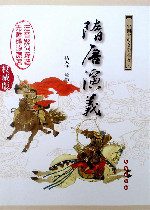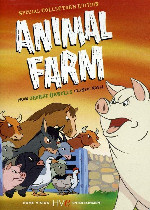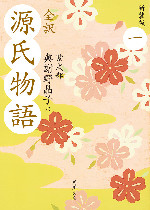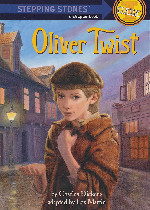
以史为经,以人为纬,串联起从隋文帝至唐明皇的隋唐170年长史!从隋炀帝和朱贵儿,到唐明皇与杨玉环,这是同一对恋人在不同轮回中的“再世情缘”!它讲述了众多的传奇英雄,从秦琼、程咬金到单雄信、尉迟恭,其人物之丰富、情节之曲折,宛如《水浒传》,但它却没有《水浒传》中满满的基情,汉子们是有爱的,是性格鲜明的,是有情有义的!它有着大量对后宫和女性心理的描写,宛如唐代的《红楼梦》,但却木有《红楼梦》的悲凉,这辈子撕扯不清,下辈子我们接着再来!《隋唐演义》以隋炀帝、朱贵儿、唐明皇、杨玉环的“两世姻缘”为“大框架”,自隋文帝起兵伐陈开始,到唐明皇从四川还都去世而终,记说了隋唐一百七十多年的历史。

Animal Farm is an allegorical novella by George Orwell, first published in England on 17 August 1945. According to Orwell, the book reflects events leading up to the Russian Revolution of 1917 and then on into the Stalinist era of the Soviet Union. Orwell, a democratic socialist, was a critic of Joseph Stalin and hostile to Moscow-directed Stalinism, an attitude that was critically shaped by his experiences during the Spanish Civil War. The Soviet Union, he believed, had become a brutal dictatorship, built upon a cult of personality and enforced by a reign of terror.

平安時代中期に紫式部によって創作された最古の長編古典小説を、与謝野晶子が生き生きと大胆に現代語に訳した決定版。全54帖の第1帖「桐壺」。帝の寵愛を一身に受けた桐壺の更衣は女御たちの嫉みを買い、幼い皇子(源氏の君)を残して病死してしまう。帝は悲しみを和らげるため桐壺に生き写しの藤壺を入内させる。源氏の君は美しく成長し元服を迎え、左大臣の娘・葵と結婚するが、苦しいほどに藤壺を慕う源氏の君の心は晴れなかった…

Oliver Twist, or The Parish Boy's Progress, is author Charles Dickens's second novel, and was first published as a serial 1837–39. The story centres on orphan Oliver Twist, born in a workhouse and sold into apprenticeship with an undertaker. After escaping, Twist travels to London, where he meets "The Artful Dodger," a member of a gang of juvenile pickpockets led by the elderly criminal, Fagin. Oliver Twist is notable for its unromantic portrayal by Dickens of criminals and their sordid lives, as well as for exposing the cruel treatment of the many orphans in London in the mid–19th century.